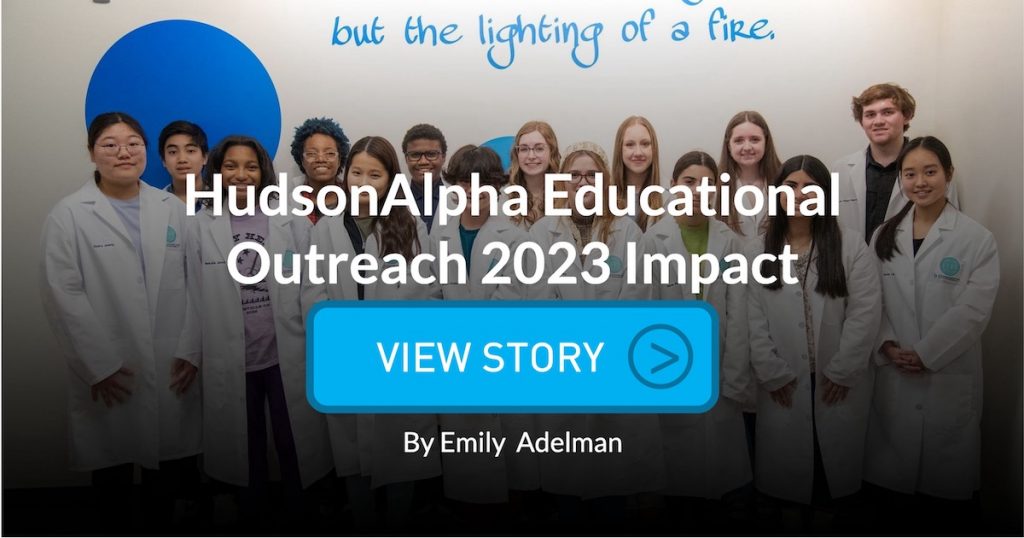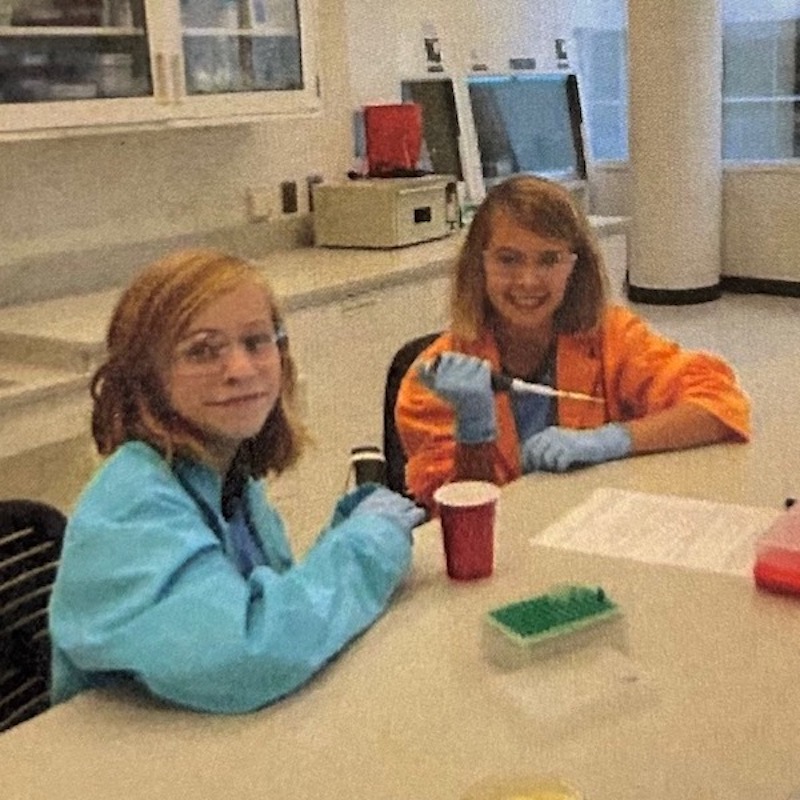Through the funding support of Wells Fargo Bank, the Science Saturday program provides underrepresented young men across a wide range of grade levels with opportunities for hands-on science instruction outside the scope of the traditional school day.
This program represents a focused partnership between the HudsonAlpha Institute for Biotechnology and The 100 Black Men of American Greater Huntsville Chapter. HudsonAlpha staff leads hands-on activities and serve as content specialists. Members of the 100 community service organizations have worked hard to ensure transportation to and from Science Saturday events, help identify students for summer science camp scholarships, and encourage and assist students with hands-on activities in the teaching lab at HudsonAlpha and at Calhoun Community College’s Huntsville Campus.
Additionally this program provides scholarships for young men to participate in weeklong science summer camps provided by Sci-Quest, the local hands-on science center. These camps provide additional opportunities for students to engage with science concepts in ways that reinforce content from the classroom and encourage interest in potential science careers.
Each of the Science Saturday experiences is grounded in Alabama Course of Study and built around hands-on activities that engage students. This provides opportunities for students who may not experience success in the classroom to learn science concepts in more depth through hands-on methods. Additionally, many of the activities are biotechnology focused and, where appropriate, biotechnology careers and career pathways will be explored. This program casts a wide net, with activities across a wide range of grade levels in the hopes of lighting a spark for science in as many participants as possible.
Currently in its third year, this program has engaged with students participating in the Men of Tomorrow program. Senior members of the MOT are serving as team leaders and helping younger students design investigations. It is hoped that this sustained interaction will allow students to become more comfortable with work in a biotechnology lab setting and reinforce concepts they encounter in their science classes.


